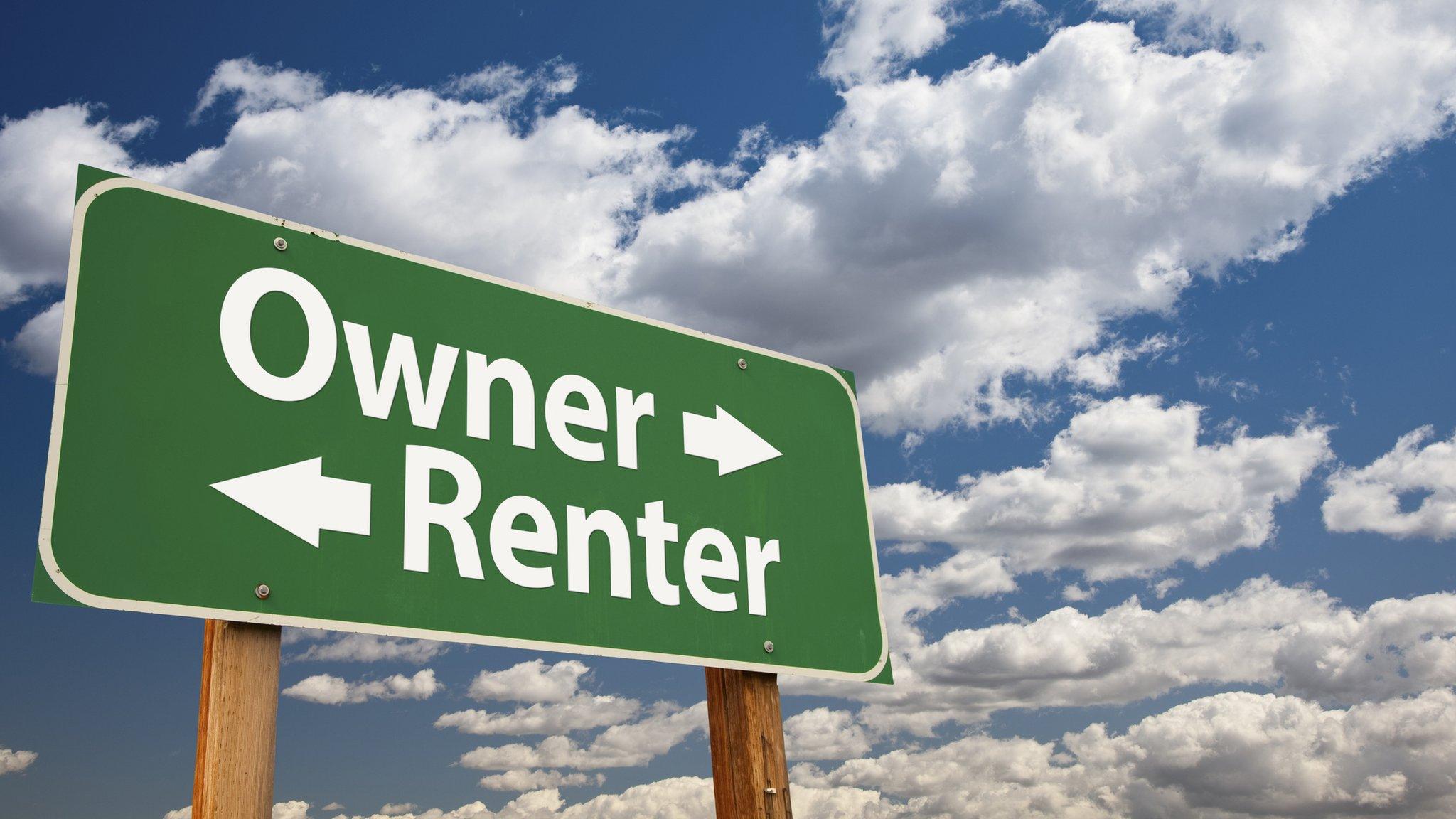Cameron promises 200,000 starter homes if Tories win election
- Published
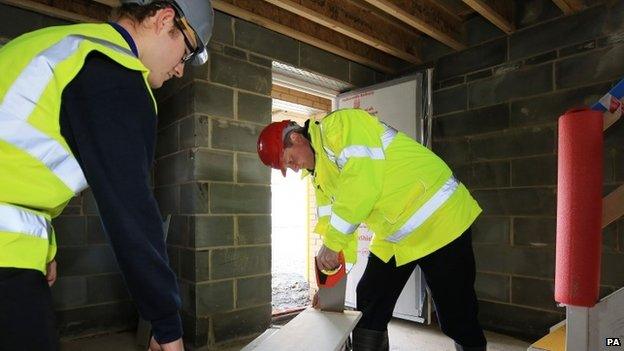
David Cameron puts his skills to the test during a visit to a building site in Essex
Some 200,000 homes will be made available to first-time buyers in England by 2020 if the Tories win the election, David Cameron has promised.
The coalition government has already announced plans for 100,000 cut-price homes for people aged under 40.
Mr Cameron said his party would double it if elected, giving more people the security of owning their own home.
Labour said the plan was inadequate and housing groups warned affordable rented schemes would lose out as a result.
First-time buyers under the age of 40 in England can now register to buy new homes, external at a discount of up to 20% off the normal price.
Fees waived
The offer is part of the government's new "starter homes" scheme to encourage home ownership and construction on previously used "brownfield" land.
The 20% discount will be paid for by waiving the fees homebuilders have to pay to local authorities under so-called Section 106 agreements, amounting to at least £45,000 per dwelling on brownfield sites.
The Conservatives say homes worth £250,000 outside London - or £450,000 in London - would be eligible for the scheme and that first-time buyers would have to repay the 20% price advantage if they sold within five years.
David Cameron: "In every single decade since the 1960's, we've built fewer homes"
In a speech in Colchester, Mr Cameron said there was "a particular kind of security that comes with owning your own home" that "too many people have been denied", due to what he described as a "quiet crisis" in affordability.
"The young people in their 20s and 30s still living with their parents, desperately saving for their own place. The couple who want a child but can't afford to upsize - even though they have both got have full-on, full-time jobs. It shouldn't be this way.
"Our goal is a Britain where everyone who works hard can have a home of their own."
'Not shoeboxes'
He said Britain's biggest builders, including Barratt and Taylor Wimpey, had signed up for the expanded scheme and it would be designed so that new properties could not be "snapped up by buy-to-let landlords".
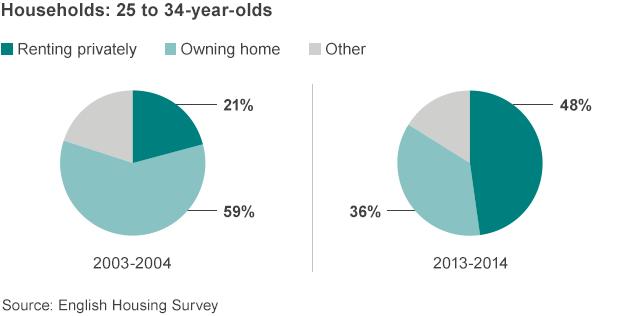
He added: "We've shown what we expect starter homes to look like - not rabbit hutches or shoeboxes, but decent, well-built, homes with gardens - places to start and raise a family."
Mr Cameron said the UK had suffered from a "chronic" shortage of housebuilding for decades but that action taken during the past five years meant the UK was on course to deliver 200,000 new homes a year by 2017.
Ed Miliband: "The dream of home ownership is disappearing into the distance"
He said a future Conservative government would also extend the Help to Buy scheme in England - intended to help those trying to get on the housing ladder who could afford mortgage repayments but were struggling to raise a deposit - until 2020 and make it easier for council house tenants to buy their homes.
'Disappearing dream'
But Labour said the government had presided over the lowest levels of housebuilding since the 1920s and home ownership was at its lowest level for three decades.
Speaking at an event in Brighton, Labour leader Ed Miliband said there would be "no greater priority" for an incoming Labour government than housing.
"David Cameron's plan on housing has failed Britain and failed families," he said. "For far too many people, the dream of home ownership is disappearing into the distance."

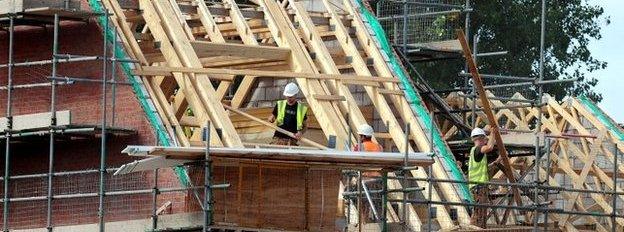
Mr Cameron said brownfield developments were his priority
Summary of other parties' housing policies:
Labour wants to see 200,000 new homes built a year by 2020. It would give local authorities new borrowing powers to fund projects and could allow councils to penalise firms "hoarding" land if developments do not begin within a fixed period.
The Lib Dems want to see 300,000 new homes built a year by 2020, including 10 new garden cities. Councils would have to identify suitable land over a 15-year period while sites would be ringfenced for smaller developers.
UKIP, external says brownfield developments should be prioritised, with reduced VAT and new homes exempt from stamp duty when they are first sold.
The Green Party wants to build 500,000 new social homes for rent by scrapping buy-to-let mortgage interest tax allowance. Its leader Natalie Bennett was criticised after struggling in an interview to explain how much it would cost and how it would be paid for.

The Conservatives are proposing to relax the financial obligations expected of developers in relation to affordable housing, believing this will give them more flexibility over the mix of new developments and make more brownfield sites viable.
But the National Housing Federation, which represents housing associations in England, said this would reduce financial support for cheaper rented housing.
"It is basically taking money away from people who are renting and giving it to first-time buyers," Henry Gregg told the BBC.
Housing charity Shelter said 250,000 new homes were required every year and the scheme was only a "small step" towards meeting that need.
But the Institute of Economic Affairs, a free market think tank, said politicians should refrain from micro-managing housing and enforcing "artificial boundaries such as green belt restrictions" forced the cost of housing up.
The number of houses being built in the UK fell during the final three months of 2014 - the first such decline for almost two years.
However, the government says 137,000 homes were started in 2014 - a rise of 10% on the previous year and up 36% on 2012.
- Published2 March 2015

- Published28 February 2015
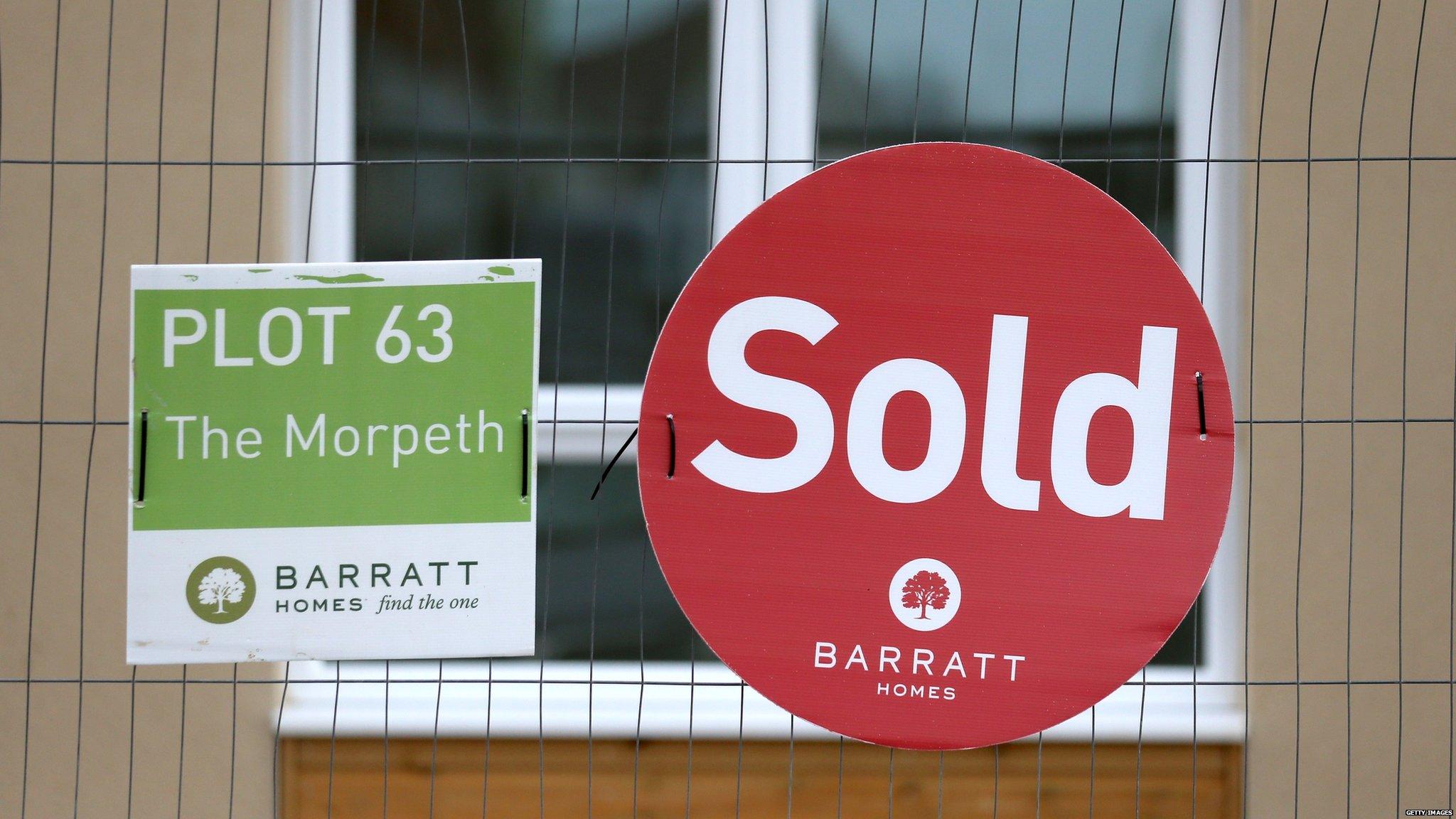
- Published13 January 2015
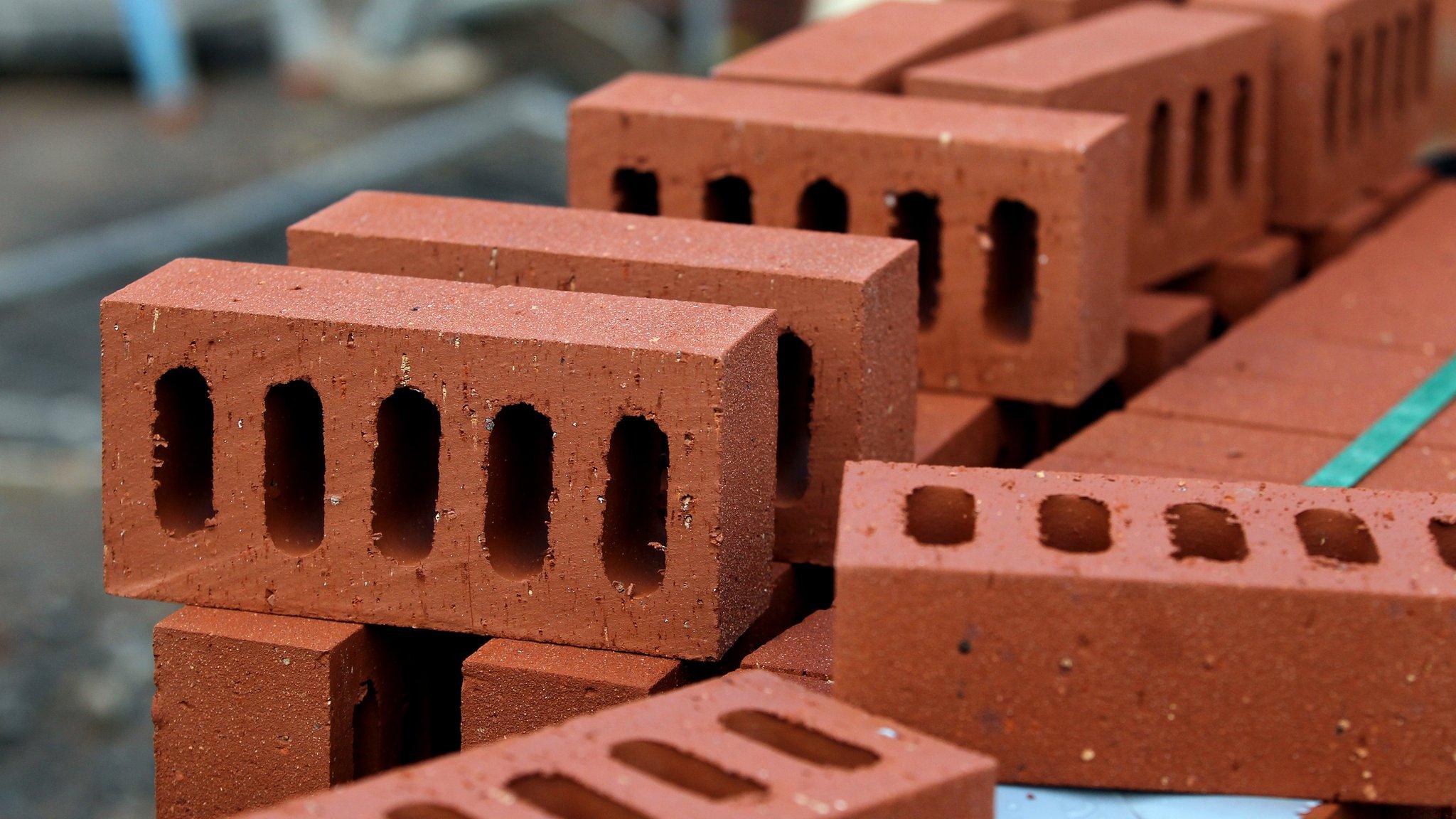
- Published6 January 2015

- Published24 September 2013
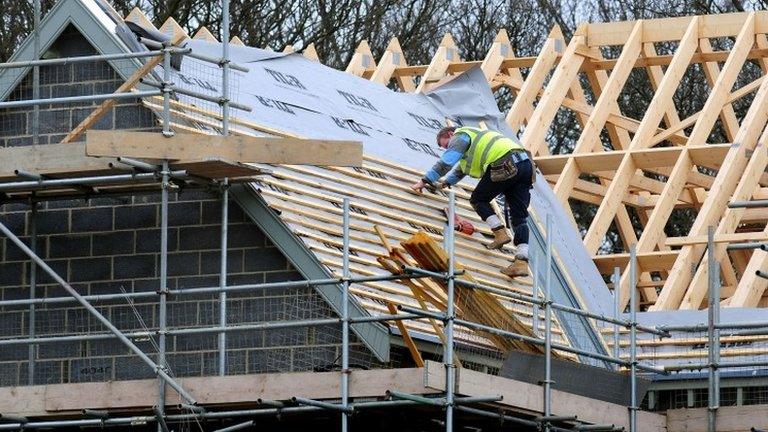
- Published6 January 2015
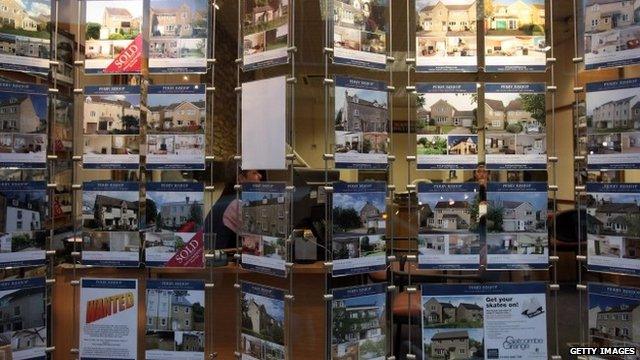
- Published23 August 2014
